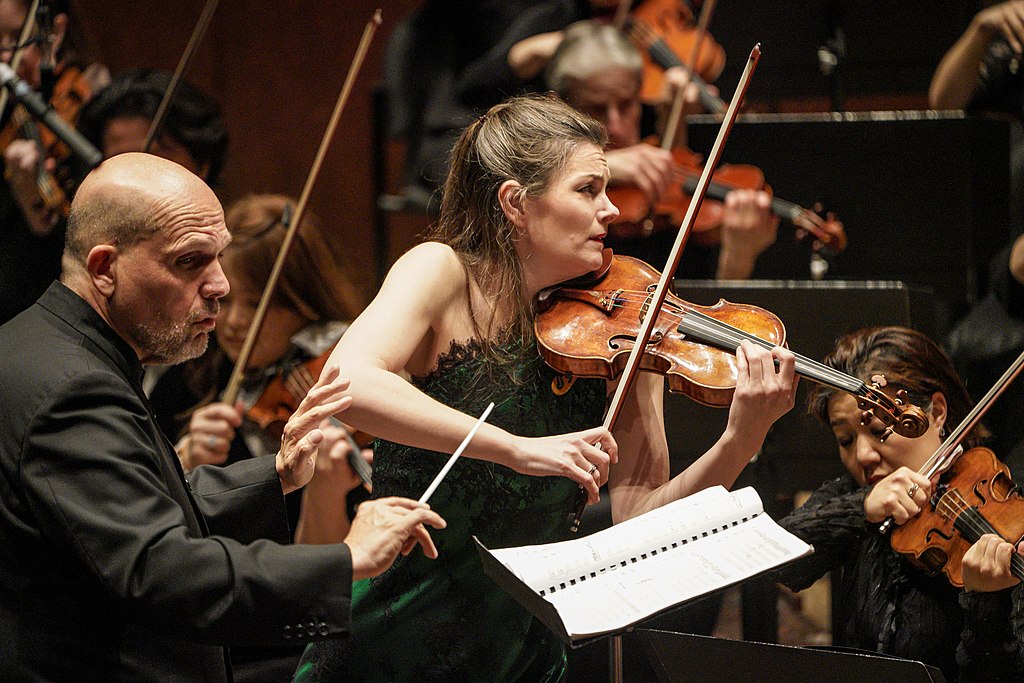
Feminist music fans have new cause to rejoice.
For the first time in the history of the New York Philharmonic, the women musicians presently outnumber the men. It’s admittedly by a slim margin – 45 women instrumentalists to 44 male ones – but for an organization that had no women among its ranks when it was founded in 1842, this marks significant progress.
Perhaps one might expect one of America’s leading orchestras (in one of America’s most liberal cities) to already be more inclusive. But the orchestra’s sexism problem persisted well into the 20th century – in the 1970s, there were only five women playing, The New York Times reported.
During that decade, the NY Philharmonic began holding blind auditions – and its number of women members began rising quickly after, paving the way to this year’s score for representation. “This certainly shows tremendous strides,” Deborah Borda, its president and chief executive, told the Times. “Women are winning these positions fair and square.”
Progress in this regard has been hard-won the world over – in Vienna, women were not even allowed to audition for the city’s prestigious Philharmonic until 1997. And representation doubtlessly remains low there as a result – there are only 15 women in the 150-person orchestra as of December 2019.
That said, the ratio of New York City’s ensemble could shift back to majority-men once it resumes auditions, which were paused in light of the pandemic, to fill its 16 remaining vacancies. Plus, there are still ways in which the organization falls short when it comes to diverse hiring practices. For example, its leadership is still mostly men – and there has never been a woman music director. Black and Latinx members are also scant.
But as the orchestra embarks upon its 2022-2023 season in its newly renovated home, David Geffen Hall at Lincoln Center, it will do so with this new, mostly-women line-up. And members are celebrating a very real win.
“It’s a sea change,” principal viola Cynthia Phelps, who has played with the NY Philharmonic since 1992, told the Times. “This has been a hard-won, long battle, and it continues to be.”



